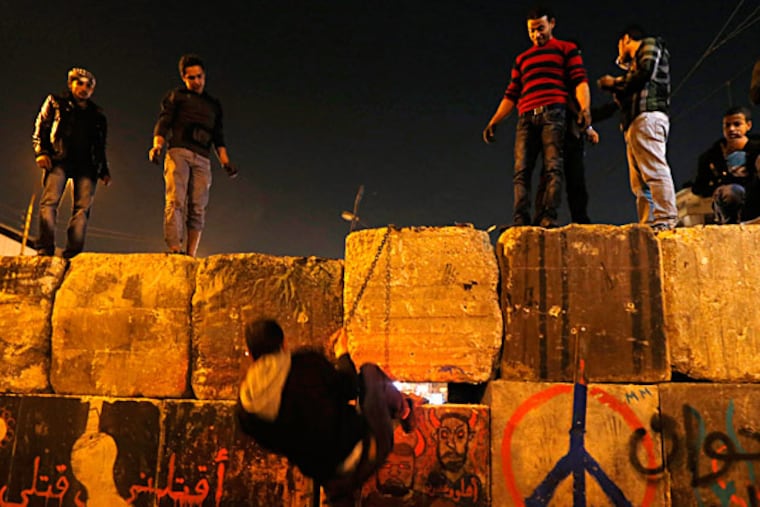Most Egyptian judges to boycott referendum
CAIRO - Most Egyptian judges rejected any role Tuesday in overseeing the country's constitutional referendum, a move likely to cast further doubt on the legitimacy of the disputed charter.

CAIRO - Most Egyptian judges rejected any role Tuesday in overseeing the country's constitutional referendum, a move likely to cast further doubt on the legitimacy of the disputed charter.
The nation's worst crisis since Hosni Mubarak's ouster nearly two years ago also forced the government to put off a deal with the International Monetary Fund for a $4.8 billion loan, shattering any hope for recovery of the country's economy anytime soon.
On one side of the divide is President Mohammed Morsi, his Muslim Brotherhood, and their ultraconservative Islamist allies, against an opposition camp of liberals, leftists, and Christians who contend the draft charter restricts freedoms and gives Islamists vast influence over the running of the country.
An unexpected twist came when the defense minister, a Morsi appointee, invited the opposition, along with judges, media leaders, and Muslim and Christian clerics to an informal gathering Wednesday, saying he was doing so in his personal - not an official - capacity.
It was the second time this week that the nation's military has addressed the crisis, signaling its return to the political fray after handing over power in June to Morsi, Egypt's first civilian president.
"We will only sit together. . . . For the sake of every Egyptian, come and disagree. But we won't be cross with one another or clash," Defense Minister Abdel-Fatah el-Sissi said on state television.
The opposition said it would not participate in any meeting that was nothing more than an informal gathering. The Brotherhood said it would attend.
Egypt's political crisis began Nov. 22 when Morsi issued a decree granting himself - and the Islamist-dominated panel that drafted the constitution - immunity from judicial oversight or challenge, sparking mass demonstrations.
The constituent assembly then hurriedly approved the draft constitution in a marathon overnight session, prompting hundreds of thousands of the president's opponents to take to the streets.
The vast majority of Egypt's judges said Tuesday they would not oversee the referendum on the draft constitution. Ahmed el-Zind, chairman of the Judges' Club and a fierce Morsi critic, told a news conference that 90 percent of the nation's judges would join the boycott.
The move was unlikely to stop the referendum from taking place, but it cast further doubt on the legitimacy of the constitutional drafting process and, ultimately, the document itself.